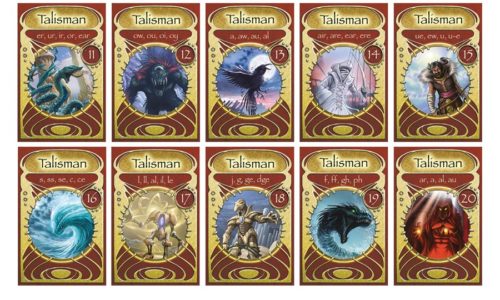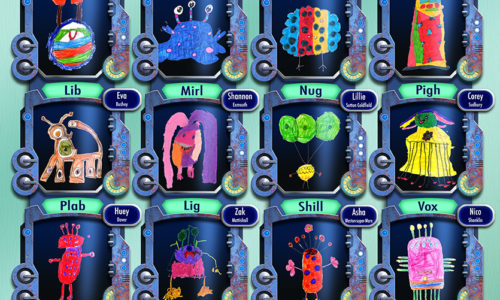The Scottish Learning Festival 19th – 20th September, Hall 4, Glasgow SEC TES SEN Show 5th – 6th October, The Business Design Centre, London Dyslexia Scotland, Education Conference 27th October, University of Strathcylde, Technology and Innnovation Centre, Glasgow The Education People Show 7th November, The Kent Event Centre, Detling, Kent Special Educational Needs Conference: Innovations […]
Read MoreNews & Information
Talisman Card games win Primary Teacher Award!

Talisman Card Games 11-20 have just been awarded a silver award from Primary Teacher. These are beautifully illustrated card games that not only develop reading skills, but social skills too. The Primary Teacher award gets teachers to try out and test products in their classrooms. These games are a favourite with students and now teachers […]
Read MoreWhat is the ‘Matthew effect’ when it comes to reading instruction?
In the context of reading instruction, the ‘Matthew effect’ is the idea that children who learn to read in the first three years of their education become increasingly fluent readers. They read more and learn more vocabulary, which enables them to even read more and comprehend more-advanced texts – so they advance further. Conversely, children […]
Read More‘Name an alien’ Competition – 2017 winning entries announced

Many schools took part in this year’s ‘Name an alien’ competition and we have been overwhelmed at the response to it and really impressed with the effort the children have made. It was really difficult to choose just 20 aliens to feature on our poster as we received so many varied and colourful drawings, […]
Read MoreSound Snap: a fun way to teach precise pronunciation
I have just started to teach a struggling reader in Year 1. The first thing I observed from my assessment was that she did not use pure phonic sounds, also known as ‘precise pronunciation’. Many of the consonants were pronounced with an added ‘uh’ sound: for example, /k/ was pronounced ‘kuh’ and /p/ was pronounced […]
Read MoreShould we label deprived children as less able?
Is it dangerous to assume that a child who has not had parental input is less able? Are we setting low expectations from the very beginning? Quirky Teacher presents some important arguments about making assumptions about pupil ability in Early Years assessment. https://thequirkyteacher.wordpress.com/2017/05/13/its-as-if-the-parents-dont-exist/
Read MoreWhat is Balanced Literacy?
When asked how they teach reading, many teachers pride themselves that they are teaching ‘balanced literacy’ in their classroom. This idea seems to imply that they are covering all the approaches their pupils may need to learn to read. But what is ‘balanced literacy?’ Can it be defined or measured? Read this article by Professor […]
Read MoreShould ‘alien words’ be part of the Year 1 Phonics Check?
It is that time of year again and the Year 1 Phonics Check is looming. It will take place this year during the week commencing June 12th. There had been a lot of criticism about the check in general but specifically about the nonsense, ‘alien words’ in the check that children are asked to decode. […]
Read MoreHow to teach reading and spelling with the Smart Chute
It is really important to teach reading and spelling together so that children can see that reading is decoding letters into sounds and spelling is encoding sounds into letters. In short, they are reverse activities. This way children learn how the English language alphabetic code actually works. It also means that from the beginning, children […]
Read MoreHow to teach high-frequency words
High-frequency words are common words in the English language. Many teachers believe that it is useful for children to learn to read and spell these words as soon as possible. The problem is that many of these words have complex spellings. This means that children may find it difficult to read and spell them until […]
Read More
